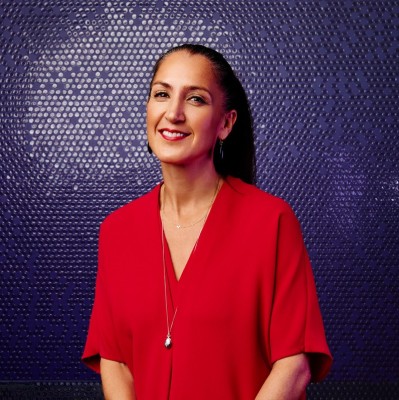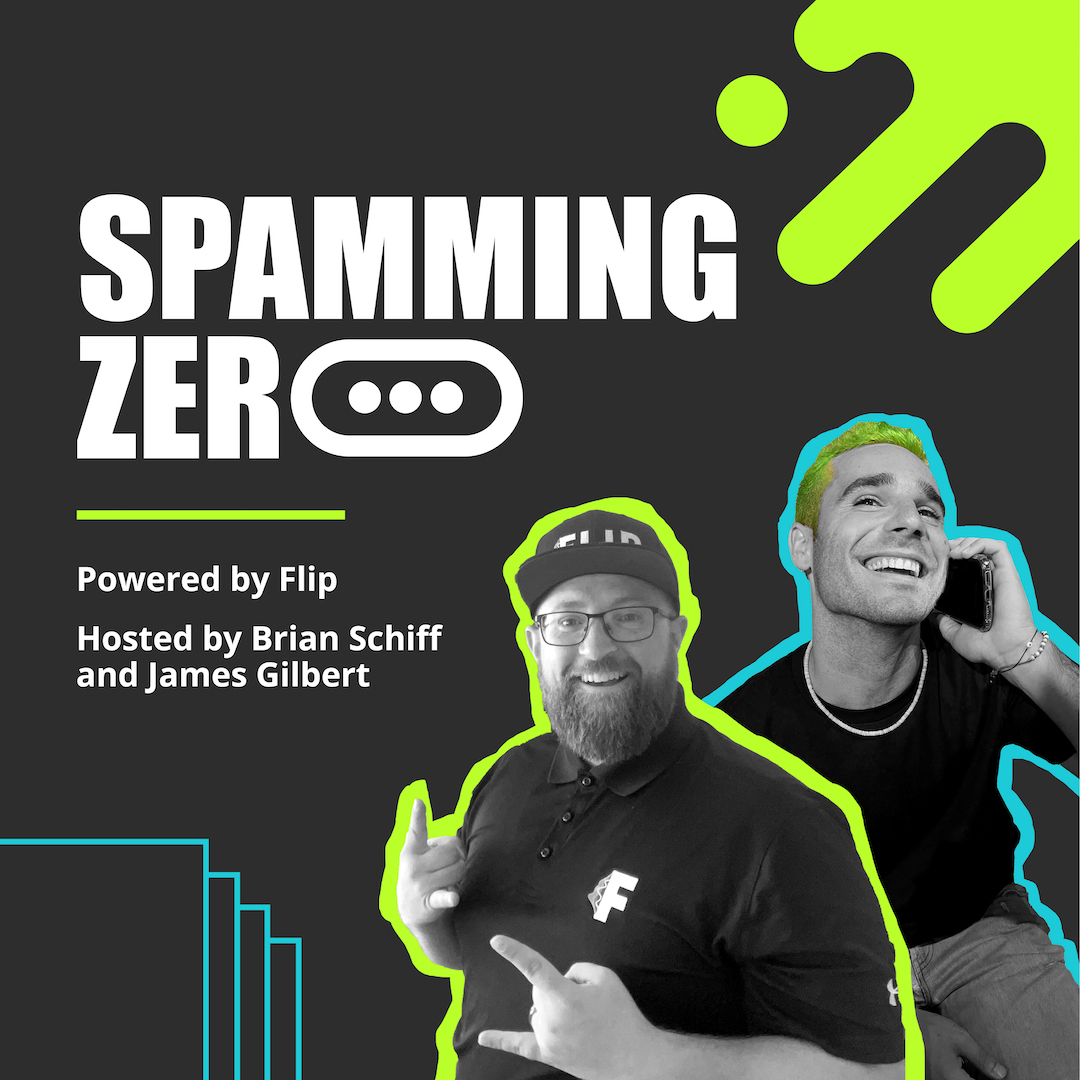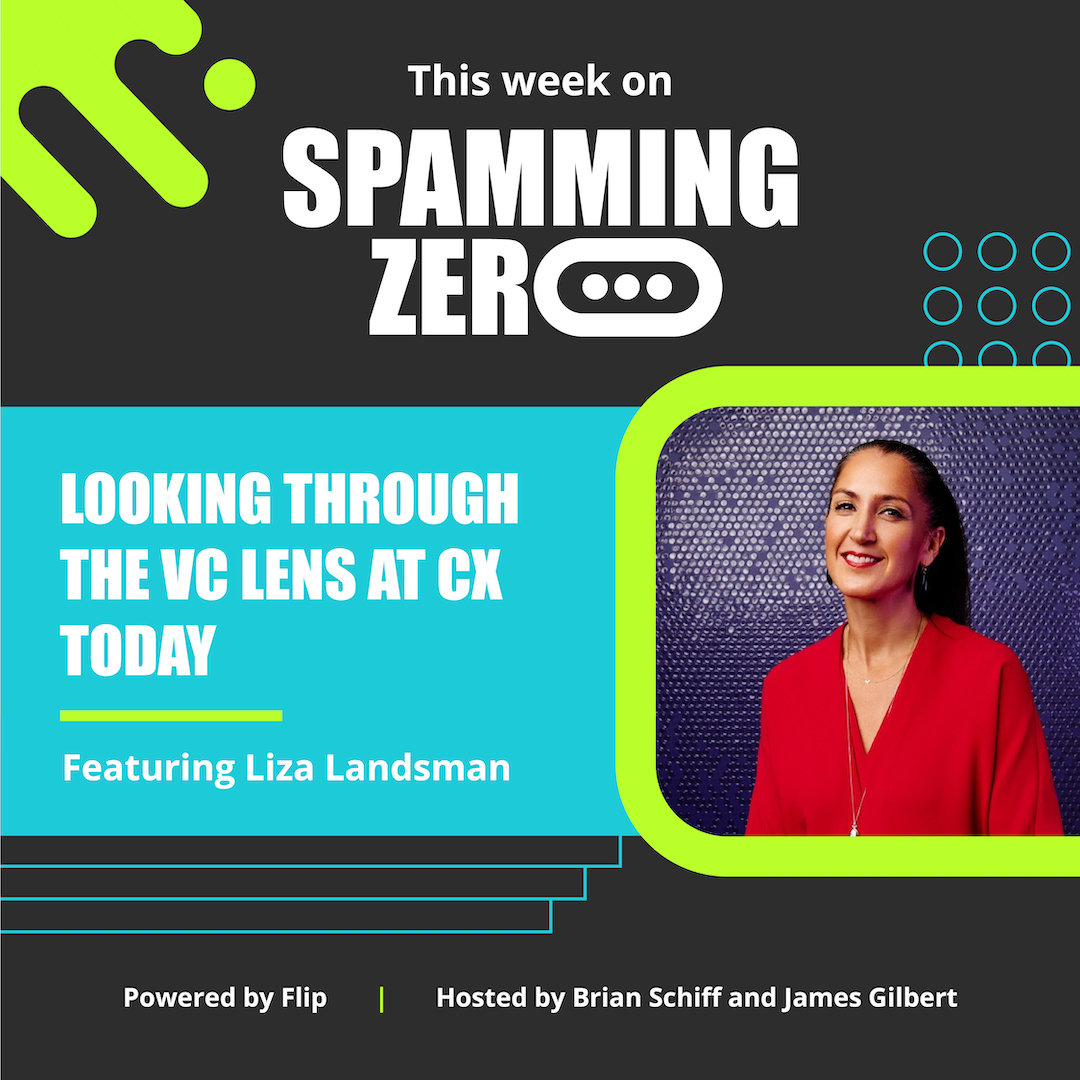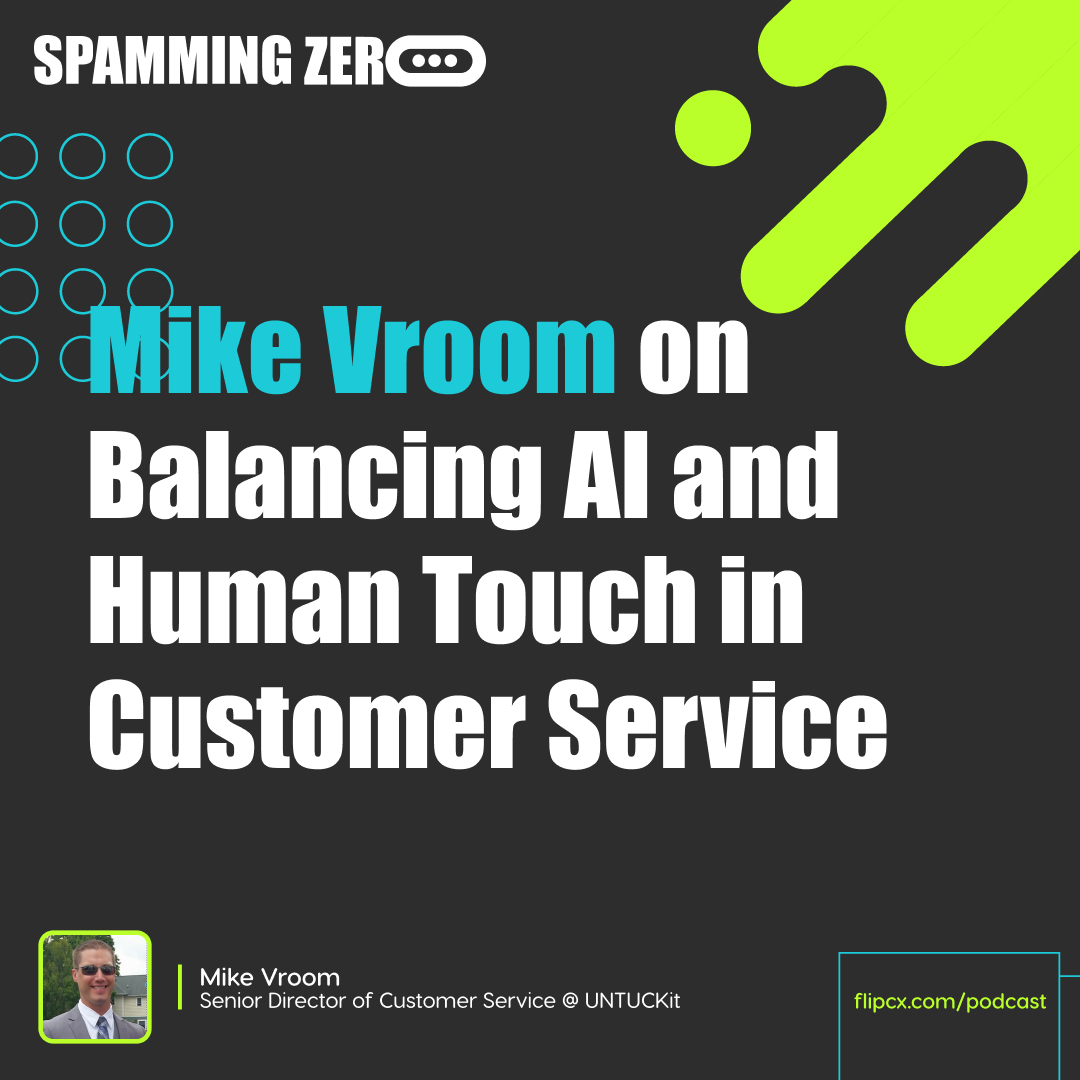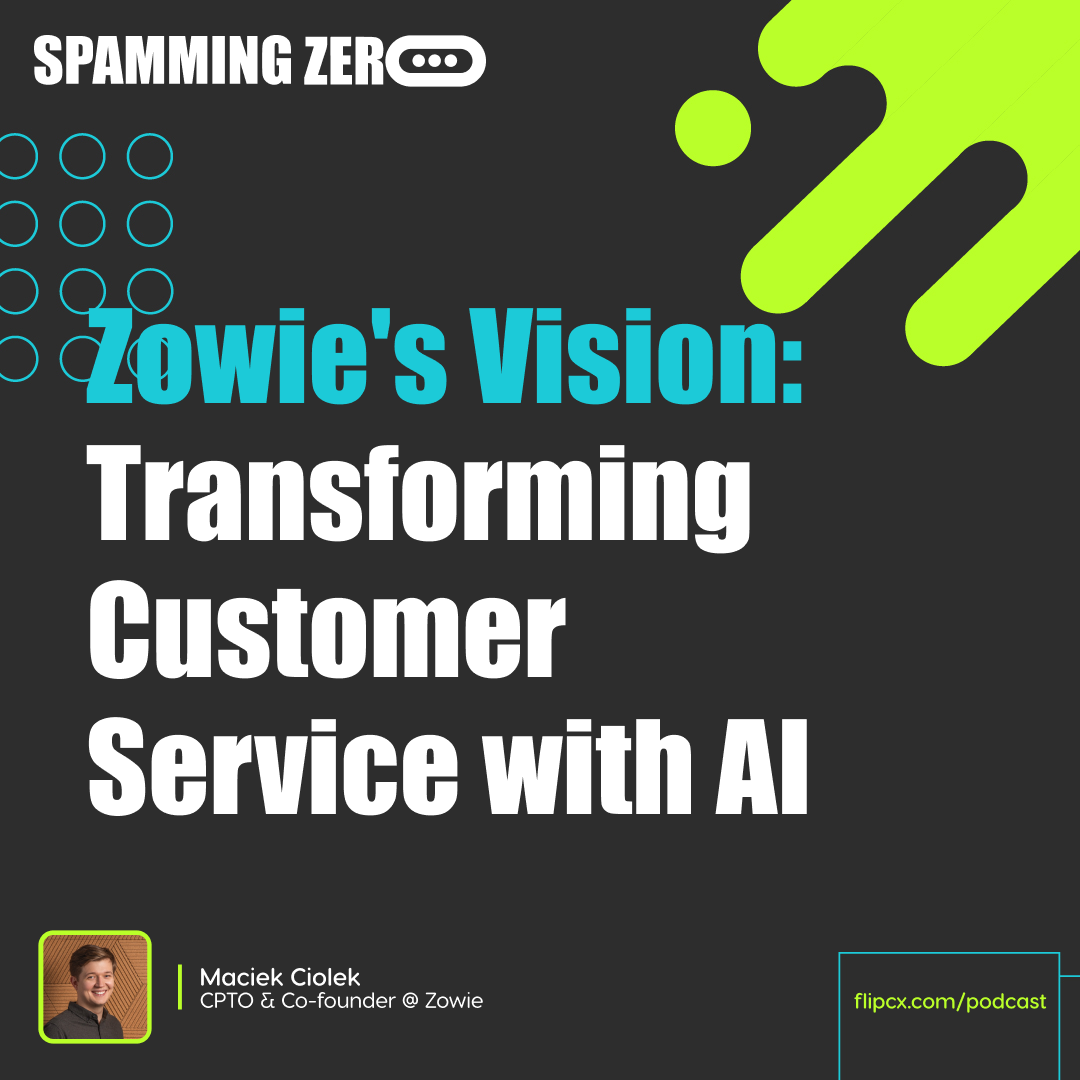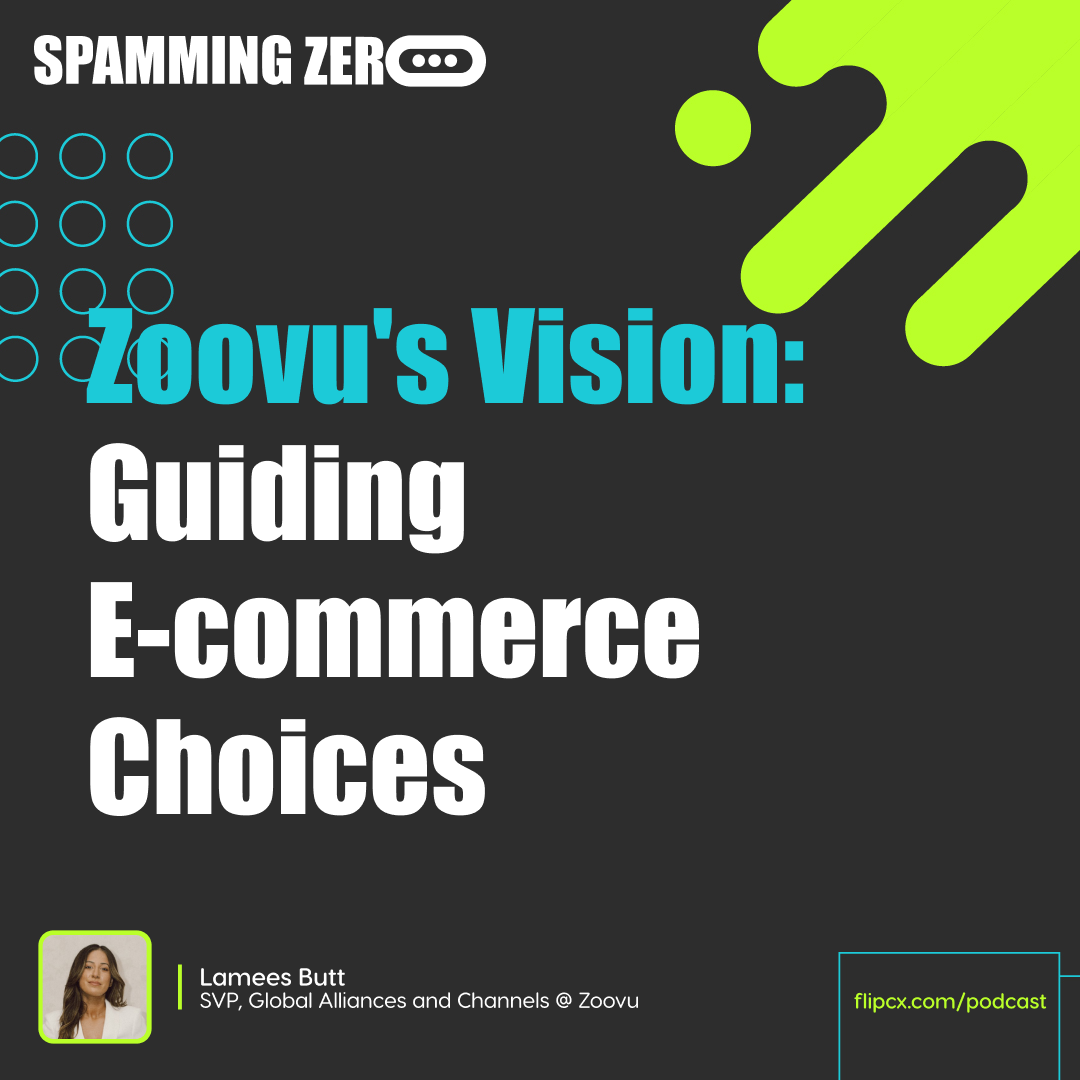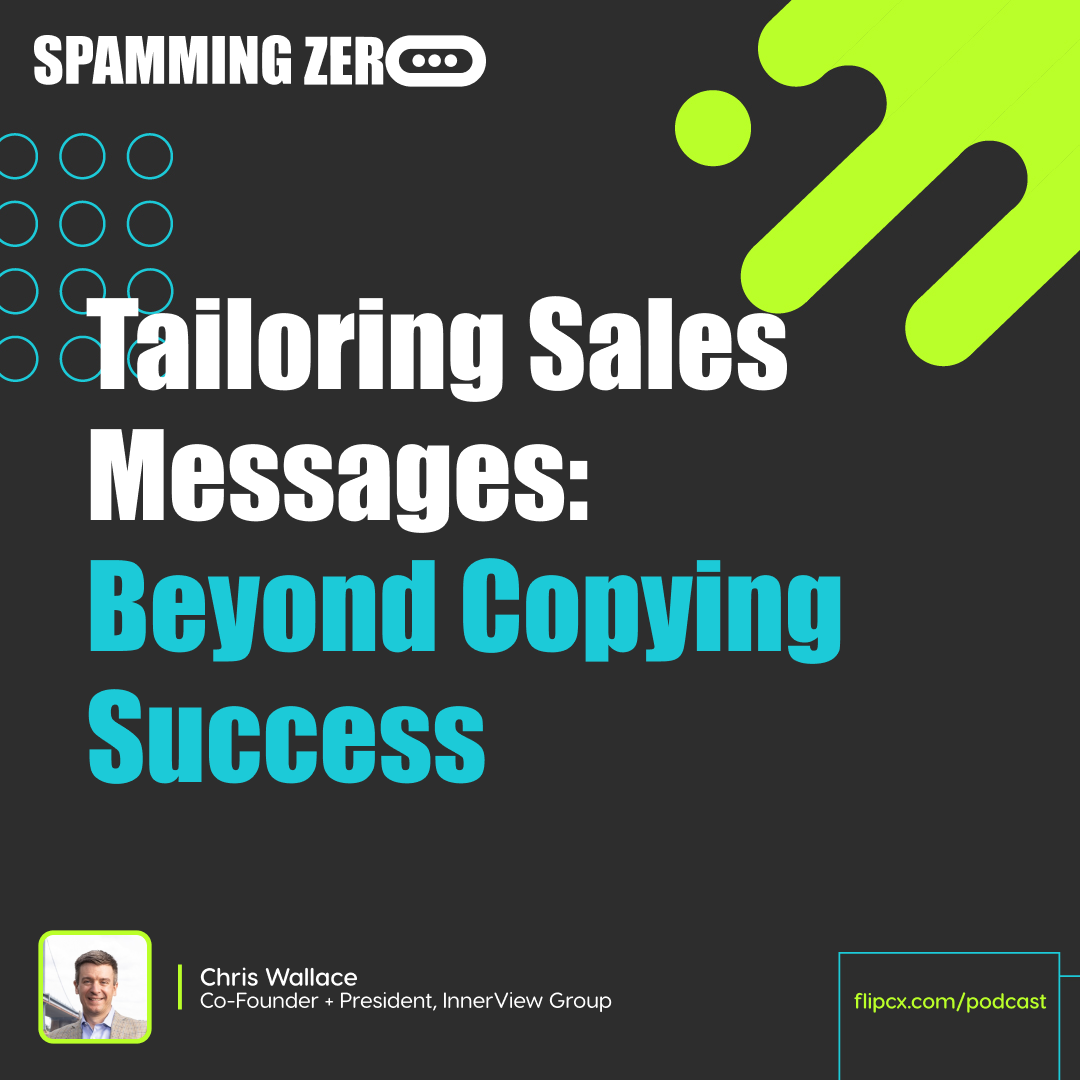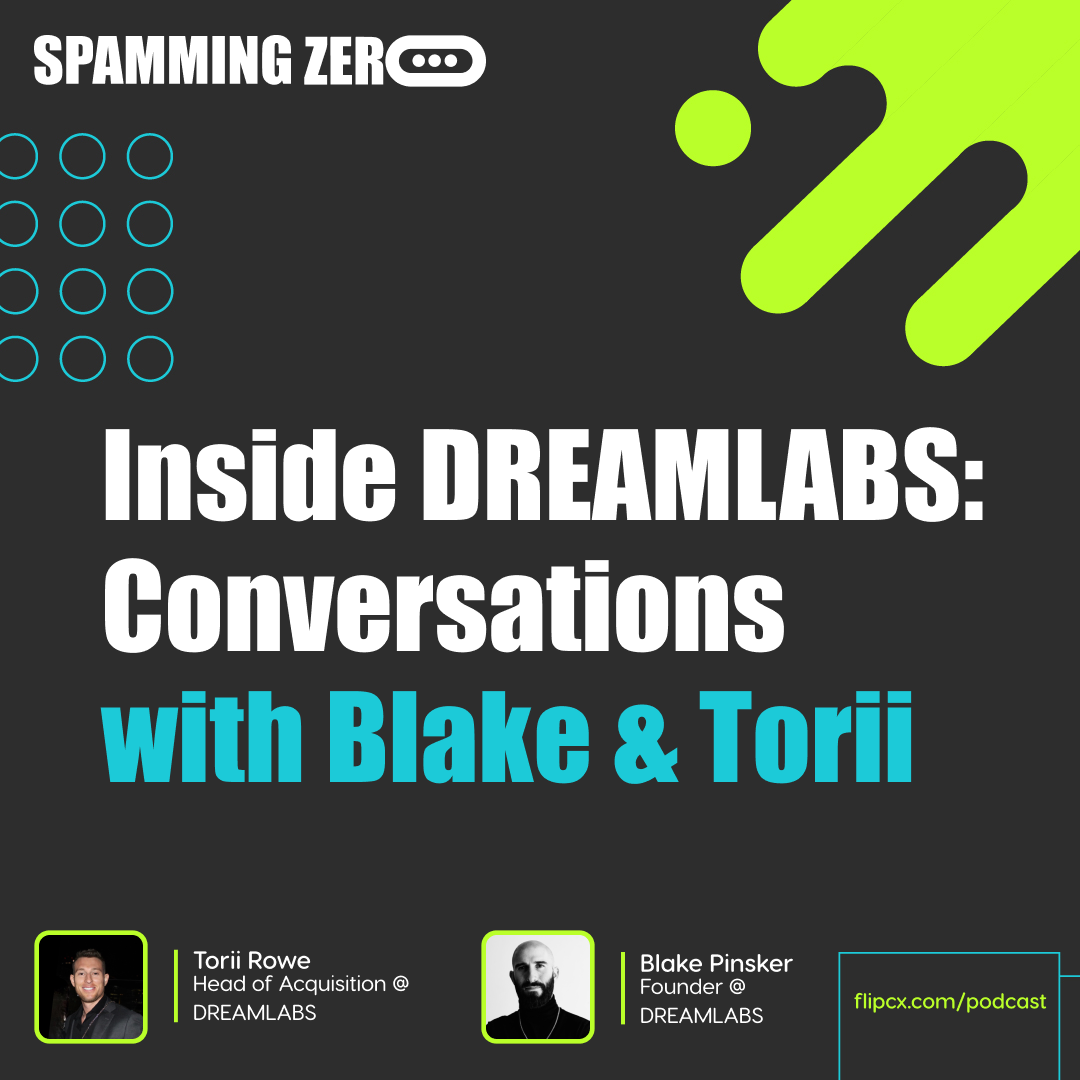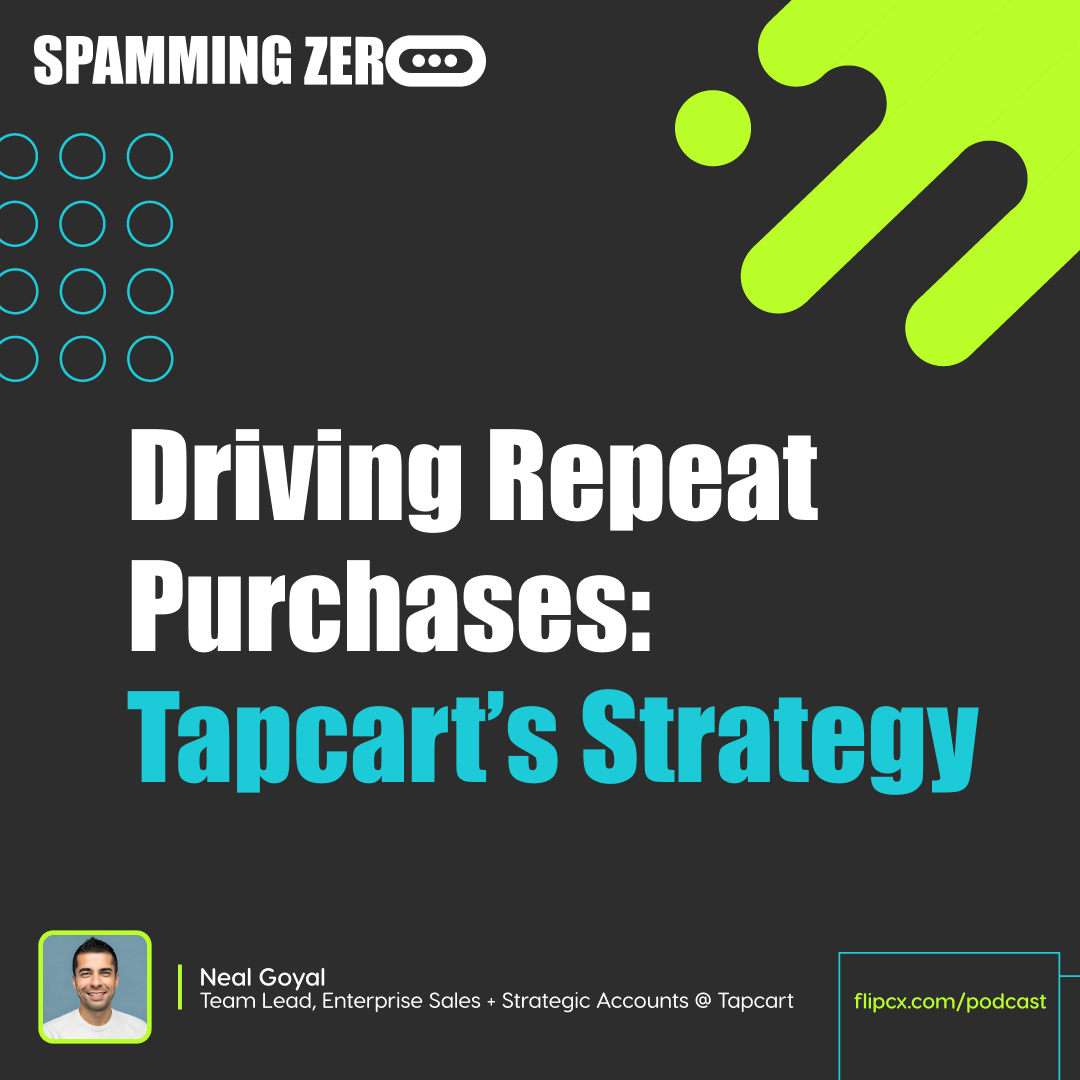Episode 25: Looking Through The VC Lens At CX Today
- 0.5
- 1
- 1.25
- 1.5
- 1.75
- 2
James: I'm James.
Brian: And I'm Brian.
James: And this is Spamming Zero. Welcome to Spamming Zero everybody. We have a great guest today, Liza Landsman, welcome to the show.
Liza Landsman: Hey, thanks.
Brian: I am really excited for this discussion today. So for those that don't know, and I would imagine that unless my parents and family are listening to the show, none of know me and Liza have a very strong personal connection through my family. And you were the very first person that I ever heard of with the title of chief customer officer and I didn't have any idea. I mean there was a lot that I didn't understand back in 2017 but had no idea what that meant. And it is something that has totally come into style and has totally become relevant to our business and what we are doing. And obviously for you, that was at Jet. com which evolved into Walmart. So really excited to dive into what that whole experience was like today as well as wherever this lovely conversation goes. But really happy to have you on the show. You were on my short list of first invites when we decided we were going to do this. So looking forward to it.
Liza Landsman: Great. I'm delighted to be here. Always nice to know my made up title was exciting for you.
James: Brian, Liza being the very first person that you've known that was a chief customer officer just tells me how young you are.
Brian: That's very fair. It is way more in style now than it was though.
James: Oh yeah.
Brian: It's like a thing now. I see it a lot.
Liza Landsman: Yeah, no, it's very true. I mean, in fact when I was joining Jet, I don't even remember what the initial title was that they were talking to me about, but I was running among other things, marketing and product and the guy who was the head of product there who was amazing, this guy Carl Steven Smith was basically like," You seem really cool but I can't report to anybody who has marketing in their title, so let's not do that." And I was like," Huh, well I got all the stuff to touch as the customer, what about that?" And he was like," Yeah, I'm down with that." So I would love to tell you I was inaudible in trend setting, but I was solving for the happiness of my team.
Brian: So you guys collectively kind of came up with that title and then went to whoever and said," Are we okay with this as the title?" And got to sign off?
Liza Landsman: Yeah, Mark was like," Does that mean you're saying yes?" Okay, cool.
James: It's interesting because I think the same kind of thing has happened with the title of CXO now chief experience officer. It kind of started in this same fashion that you just explained. I think there's a lot of people out there that had the same maybe similar experience as you at that executive level.
Liza Landsman: I think that's right. I mean I do also think all kidding and flippancy aside, there has been a real awakening for a lot of companies, particularly those that touch consumers or that touch customers, regardless of the flavor of customer. For many people, whether you're in the software business or something else, the experience is the product. And so there's a little bit of," Oh, maybe we should actually pay attention to this." As opposed to it'll all kind of happen in the ether and it's all good. And so I think sometimes, I mean it's in the same way you used to see chief HR officers and now it's chief people and chief talent and some of that is semantics. But I think some of it is actually an underlying shift in how people think about the importance of the category or a functional leader. I mean sometimes it goes too far. A board that I sit on spends a lot of time talking about human capital and that phrase makes me extremely uncomfortable.
Brian: Yeah. I agree with that one.
Liza Landsman: Well I get where it's coming from.
Brian: So obviously you have since now evolved into your role as a VC. I'm curious how, do things related to the customer experience and the metrics that are often associated with customer experience, how prevalent is that in your conversations with founders and kind of your diligence on a business? What is the lens that you look through from the VC perspective on it?
Liza Landsman: A lot of those metrics are extremely important. I mean it depends a little bit on sector and stage, but NPS is extremely important, particularly in early stage companies where you don't have tons of longitudinal data to look at on retention. And so NPS becomes this highly important indicator and predictor of product market fit. I think we look a lot at broadly, if it's not a consumer company where there's NPS, we look at CSAT on loan customers to kind of suss out have these people built a product or an experience that actually is sustainable and has longevity. So that's really important. A huge part of our diligence process, particularly on companies that are in the B2B space, is talking to existing clients. That's a huge part of the process because we can look at the metrics of the business and obviously that's table stakes are those being healthy and moving in the right direction. But the best way for us to understand whether or not customers are really loyal and how they perceive a product or a platform or solution versus its competitors is to talk to the customers. And we always do that. We often also talk to people who have tried it or people who are prospects to get a better read of the market and what are the sort of key decision criteria. So that end to end customer experience, whether it's a consumer business where we're looking at NPS, cohort retention data, we'll read reviews online, we'll do the same thing on the B2B side and that's because great companies inaudible out of people really responding to product in a positive and enduring way. And snapshot metrics alone don't give you that data.
James: Here's the other thing, it is, I'm a marketer, so know you can game some of that.
Liza Landsman: Very brave with you to say that in public.
James: I know. You can game a lot of that stuff in a lot of those metrics.
Liza Landsman: Well of course I've never done that but inaudible. Sure.
James: I love the fact that from your VC lens, you're looking at this from like," Oh, we actually go talk to customers and we hear them." A good example of this is that I sit on a board of a company that does their gifting platform, won't say their name, but there was some situations that were happening during the pandemic that had a huge impact on a lot of customers, but their reviews still were showing amazing things. Their NPS was still showing amazing things, but then if you dove into it and you started talking to their customers, there was big issues. And I think that that's some one of those things that you can't really identify all of the big challenges that people might have. And I think especially I think one of the reasons why Brian might be bringing this actual question into the table is like we've been talking to so many people recently that sit in the Ecom Space that are trying to figure out how to make sure that their tech, especially as it relates to customer service and customer experience is not cut right now because there's a lot of cuts that are happening in the economy. So outside of these metrics and looking at these things that really matter, what's your advice to them on where their focus can be so that these things aren't cut?
Liza Landsman: A lot of this is going to be very situational on stage, sector nature of business, but one of the things that could come back to something you and I have talked about before, which is, a lot of people approach solving the problem of increasing cost efficiency by starting with increasing cost efficiency and then backing into," Well how do we make that as painless as possible for customers?" Versus starting by saying," How do we maintain the best possible experience and then re- engineer costs around that experience?" And there's a really important difference in what your priorities are, but also actually how you solve the problem. Because you could say," It would be great. We can fire every human being we have that does customer service and support and automate 100% of what we do and we get a real cost efficiency." And there are a few companies where that would actually work, but in most instances it's some combination of software automation and places where human touch matters. And so kind of understanding what those, not to use this cliche, but moments of truth are for your customers and then saying," Okay, so how do we deploy our humans at those moments that require judgment that automation and routing can't solve for?" So we're kind of using that resource that's super precious and super expensive in the most valuable ways and let everything and figure out everything else where it's a better experience automated and actually understanding your customer's journey and what both their decision points are on purchase, but also what their critical moments are in servicing. Which of those things falls into which bucket, I think is the right way to organize your thoughts around it. There are lots of ways to drive efficiency that also actually improve experience, but if you don't know what your customer's journey actually is, you don't know what those things are. I mean this is a terrible example and it's going way back into the weeds for me, but years ago I ran part of the inbound call centers at Citi and one of the calls that we used as a training example was somebody calling in for a credit line increased to pay for their mother's funeral services. Now this person was over their credit limit or at their credit limit and if we had done that purely through automation, the logic would've told you, do not do this increase. But when a human being with a lot of data that was enabled by the desktop saw this person with good repayment history, he'd been with us a long time saying no in this really painful moment of truth is going to be super bad for a long- term relationship with a customer. Those are the kinds of things where you want to effectively pop that out of the queue as opposed to fully automate that full experience end to end. So I would say think about automation, AI and intelligence kind of gets you to the 95th yard line and then of common sense and a little human intervention gets you that last five yards into the inaudible that is my warm inaudible
Brian: One of the things that's interesting here is I almost wonder this renewed focus on the customer experience and that being a thing that needed management and needed care and love and it is in a lot of ways tied to the product but goes right the product, they influence each other but they're also different. It's kind of like that overlapping Venn diagram. And I wonder how much of that, and I'm asking both of you as the marketers in the room, how much of that is almost like a problem generated by all of the digital marketing automation and all of these different ways in which you can just go crazy touching customers and you got this person managing this tool and that person's managing that and this is happening over here.
Liza Landsman: I think some of that is probably causal, but I would also say the fact that more and more stuff is sold digitally. It's not the fact of automated digital marketing. It is the fact that regardless of whether you're in a consumer business, e- Commerce or retail business, although it's acutely true for those categories or even software lead gen, a lot more of it happens at arms length now as opposed to hand to hand selling. It's very different to think about customer support in a world where people buy sofas online they've never sat on versus 15 years ago there wasn't a sofa in America or very few that were sold without someone sitting on it, measuring it, knowing it would fit in their apartment. And so now a lot of the things that maybe were happening from an experiential, the extension of product into experience was happening free purchase. And now a lot of that stuff is just happening at a different part of the cycle. And so customer service and customer experience teams have to handle a whole host of questions and host purchase issues that just didn't exist before. If you had sat on a sofa before, you would know whether the material was scratchy or not, but you don't know until it's in your apartment now.
Brian: So it's almost like the people that ran the customer experience were people that were in all of the stores where all of the goods were sold.
Liza Landsman: Yeah.
Brian: And it may or may not have been operating under that title, but they owned it.
Liza Landsman: Yeah, look, in a way, it's just a shift of geography of where lots of different parts of the customer experience are happening. I mean you think about it, the experience you had walking into a retail environment before where there was a scent that had been curated specifically for the store, there's lighting-
Brian: McDonald's french fries.
James: Bathroom body works is what gets me, man. You walk past that store, it makes me want to go in there every time.
Liza Landsman: I have no idea what you're talking about. But all of those things are before and now is all of that cared for in unboxing? Probably not, holistically, I do think there is a thing, I want to say 2017, 2018 sometime around there. I know while I was at Jet this came out, it was Pew Research, I think it was Pew, but it was a big national longitudinal study. They're talking about American trends and preferences around style and customer experience. And one of the things they talked about is that two out of three American households at that time has probably gone up since then owned an Apple device. And the reason that I bring this up is that think about the infusion of design sensibility, ease of use, just a raising of expectations across the board and whether that's on your computer, your phone, your music listening device, that kind of raising of expectations of the American consumer, I would say the American customer because all those people are corporate buyers too, has created a really different and heightened sense of expectations around, how easy is something to use, how intuitive is the interface. When I take this out of the box and plug it in, it's going to work seamlessly. And I don't want to put all of this burden or blessing on Apple, but I do think it's actually a really seismic shift in how American consumers think about how they're going to interact with products, goods or services. And that also didn't used to be true. And so you got this both shift in how people buy and a broader shift in the market of, everything is beautiful and easy. And I would say 20 years ago, if you ask American consumers that, they wouldn't have said that. They were kind of like," My bar is my cable provider." Which probably sucks.
Brian: And James I'm curious your thoughts here. And then there was also almost the Amazon component of, they kind of set the standard for inaudible. Yeah, you get the speed element bar there also.
James: Convenience.
Liza Landsman: Convenience and it's almost everything I might want. And so there's kind of been over the last five to 10 years unparalleled access at reasonable price points to almost everything really quickly and it's well designed and that's this backdrop and then you're almost selling to consumers now go.
James: I mean no-
Brian: One click purchase and it's at your doorstep in two days.
James: Plus it's changed the way in which we look at products too. When I go to a retail store, anywhere, literally I will always go to Amazon while I'm in the retail store to see if it's a better price or if it's a similar price that I can get shipped to me two days later.
Liza Landsman: Well I go online and look at reviews while I'm in stores. You like-
James: Oh exactly.
Liza Landsman: Which one of them is better.
James: It's changed the way that we've behaved as consumers because everything is so convenient there. They have a review process and having accessibility to the ideas of what people have with the products and their real life experiences with them. Now Amazon has these video reviews of people actually unpackaging the item, using it live. It's a whole different type of thing. There's two things, one of them, Liza you mentioned and I agree that I don't think it's this mass amount of automation that's caused this problem. I think that one of the areas that I think is often forgot about, I think across organizations, many that I've talked to, that I consulted with for a very long time, I made a lot of money doing this on the side as a consultant and most businesses don't. They just don't map out the journey and it's a problem. I think that it needs to be an exercise that people go through. And I think that you mentioned that Liza is mapping out the journey and understanding the journey. It doesn't mean that you have to have every little detail figured out and every little detail maximized to, going to the phrases that I use, the crawl, walk, run. It doesn't mean you have to have it at the run phase. But you have to have an understanding and you have to document it.
Liza Landsman: And I would say going maybe a little bit more into the weeds is that I think a lot of people do map part of it, but they basically map up to purchase. It's like a romance novel that ends at the wedding and forgets the next 30 years of marriage as the real story. And this to me is one of those obvious things to do that many companies don't do, which is think about," Okay, the beginning of the relationship is the purchase. Now what happens in that customer journey?" We did an interesting thing at Jet, which is we did a very simple customer journey mapping where we just asked people with those annoying smiley faces that they use at airports when it's like rate your experience. And we did it kind of discovery offsite searching on site, adding something to basket, waiting for your stuff to show up, unboxing and then using whatever it is you got from us. We're just trying to get a sense of emotional states of people and it was super interesting and this is going now back five or six years, but basically, we in our heads we're like," Oh it's very exciting when you're buying something." No, that's super boring and kind of like," Well this is just how I make the sausage is the finding of the thing." Occasionally you get these spikes of emotion when people find a good price or find exactly the right product, but that was pretty all middle of the road. The spike of excitement happened at unboxing where like," Yeah, I got my stuff." And it caused us to really rethink about where we put the emphasis on investing in customer experience because that upfront piece has to be seamless and has to work, but it's not the place that's emotionally fulfilling for the consumer. Now that's going to be different in every company's customer journey work, but kind of understanding what are the highs and lows for your consumer makes a huge, huge difference. And I think a lot of people kind of truncate that work and kind of feel like once the thing is in the basket, our work here is done.
James: You bring up a really good point, which was actually leading to the second point that I had, which is along these lines of, I call these sort of unconventional moments or some people refer to them as a wow moment. And I think that the nitty gritty details of figuring out where these wow moments should happen is the best thing for you to do is literally be a consumer and go buy a product and see what it's like, see how the whole experience is. And I know that that's a single touch point. It's not hundreds of products that are going out. So you could maybe get one bad apple out of the group. But ultimately, going back to what we were talking about too is when we mention going through a retail store and you walk by bath and body works and you smell that smell. Taking that to the unboxing is oftentimes I don't think thought about at a brand level. That is a brand touch point that can create emotion and connection to people.
Liza Landsman: So going back to the question you guys asked early on was like what are some of the things we think about and how do we diligence things as investors? We often when we're looking at consumer companies that people will be like," Oh, I'll send you stuff." And I'm like," No, no I've already shopped on your site." Or," I'm about to shop on your site." I don't want the venture capital version of the experience, which I'm sure will be pristine. I want the consumer experience and I want lots of people from our team to do it. So it's not just like," Oh, I live in New York and maybe their distribution center isn't so far." But really want to have the experience that the consumer is having. I mean it's part of the reason why we do B2B stuff because we can't necessarily sort eat that dog food. We talk to existing customers and prospects and to try because we're trying to recreate the experience we could have as a customer on the consumer side by talking to these folks. I also have a mantra which drives my team crazy because I was an operator for so long, I feel like venture capitalists must pay retail. You should drive me crazy when our investors would ask for discounts. Sorry inaudible. I'm just like," Hey, don't you understand you're eroding your own profit margin. Let me keep this." It's the same reason now when I'm like, diligence in companies and they come up like a link that's a paid link. I never click on that because I think about the money.
Brian: It is hilarious. I think about that too and I'm going to our own website and I search it on Google and then I get the PBC is popping up first. I'm like," Oh no, can't click that." Got to scroll down brand driving up our inaudible. Look at this. Yeah.
Liza Landsman: Well I think people who understand that who I'm like," Oh, I never click on the paid." Except I will always do it for Amazon because of course they should pay.
Brian: Yeah, of course. So one more question for you, and I know James, you're getting ready to cut me off because we're coming up on time here. I think that at least in very simplistic and classical thinking, the vetting of an early stage opportunity is a lot about product differentiation. I know at least for me coming up in this experience, everything was always about product differentiation. And when you shift to the B to C side of the coin, I feel like brand and brand value is almost spoken about side by side or even sometimes above. And how do you think about that?
Liza Landsman: I have a point of view on this and I will just always call out when this is my Liza Landsman rogue employee point of view and not necessarily a broadly held view in the industry or at my fund, which is, I don't want to say anybody can build a brand because it's hard to build a brand, but building an early stage brand is actually not as hard because if you are a smart thoughtful person, you can probably find at least some other humans who like the thing that you have built. And so it's very hard to tell when something is very small whether," Oh you found the other 5, 000 people who dig this. But that's all there is." For me, early stage on consumer outside of the motherhood and apple pie stuff like inaudible and early velocity, it's all about the team. And some of that is just, it's some about a track record. Some of that is just my sense of, you guys know this, it's incredibly hard to build a company, super, super hard. And building a sustainable company is that times 10. And the only thing that you can know for sure is going to be true is nothing is going to unfold the way you think it's going to. And so you're looking for people who have the intellectual force power and the emotional fortitude to overcome the 47 things that are going to go wrong or go differently than you think. So I sort of focus a little bit more on that. And that said, it's almost like great brand is table stakes. Even if they're great people and the brand stocks are isn't getting resonance, then that's a deal killer to begin with. But I would say the other thing is we really do pay a lot of attention and diligence on the consumer side. Having a great brand is subjective, but we will read as many reviews as we can find. We'll look at social media following and the quality of the post, not just the quantity. If a brand gets attacked or into trouble, we actually look at what people, is there a community that's defending and advocating for it? Because really it's about the intensity of the love and that is really indicative to us. And I think, so that's about quality of the experience, it's about the resonance of the brand. It's also about whether this brand has thought about community and their customers and it doesn't make sense for every brand to do that. But it's really interesting, we're investors in this company, Harper Wilde through our joint fund with CAA called Connect, which is, I believe the correct term of art now is foundational garments. But they sell bras and underwear and they do really cool stuff. They do a lot of colabs. They did a great thing where they're donating money to Planned Parenthood after Dobbs and they've done this before with these inaudible that say," Fuck your laws." I got them for everyone on my daughter's crew team. Amazing. But it was super interesting because I don't even remember what their kerfuffle was, but at some point they did a capsule collection and one or two trolls came out and was saying something about the woman who they did the colab with that was negative and their community rose up and was so fierce in their love of Harper Wilde and defending the brand and the colab. And it was amazing for us to see this because the brand didn't have to say anything. Their customers spoke up for them. And to me that is about the product, but the experience and the ethos they created around that brand. So to that extent, brand really matters, but it matters because it creates true stickiness and loyalty with consumers, sometimes there are brands that are super cool but are very transient in the hearts of consumers and that's super hard to suss out in early stage. I will freely admit.
James: I completely agree with you, it's why I think Brian liked me so much to bring me on is because that's my inaudible
Liza Landsman: The halting lines of consumers.
James: Don't know why, but it's a big thing that I do. I believe in those wow moments and creating the stickiness with customers because I think that marketing should be responsible for how the brand is perceived and portrayed all the way through post- purchase as well. And I think that it is our responsibilities as marketers to figure that out and make sure that we are naturally, and I say naturally because it can't be gamified creating community amongst the customers that they felt like there's a safe place to be themselves and express that.
Liza Landsman: I think when I was first joining E- Trade, the CFO who I later became super close with but was very skeptical about marketing when I was being interviewed was like," Well, marketing is basically just advertising and that's all discretionary spending." I was like," Well that's the piece above the water line of the iceberg of what marketing does." I was like," But honestly marketing answer one question and one question only, which is what do we want people to believe is true about us?" And there are lots of different ways you have to answer that question. And some are in product and some are in experience and some are in the artifacts you produce in creative, but unified marketing does that really well and it's one of the things that's super interesting as we've moved more into the digital space. I just have one rule for my teams, which is everything we say about ourselves has to be true. That seems like it's obvious, but that has not been the history of classical marketing. And I think in a world where the space and the time between the click and the experience is nanoseconds, customers are really good at sussing out when you're bullshitting. And so forgetting about the morality of it for a moment, it's just really capital inefficient to be inaudible
James: I love it. That's a bike trap right there Liza. We are at time we appreciate you coming on the show and joining us today. Thank you so much.
Liza Landsman: My pleasure. Great seeing you guys.
James: If you have not yet subscribed to Spamming Zero, please do so. Give us a review, let us know what you think and reach out to Brian and I if you want a topic on the show that we have not yet covered, anything else.
Liza Landsman: For a second. I thought you were saying that to me, like I should subscribe, and I was like," Well, I should totally do that."
James: You definitely should. Liza. I mean, again, this is me keeping my MO like you are a customer in this particular moment. On our show, so here's my sticky moment for you as I don't require you as the guest to do anything. If you want to subscribe, great. We would highly recommend that, but we're not going to require you to do it because we think it should come naturally.
Liza Landsman: I love it. I also like the hand selling in this moment, so I'm super into it.
James: All right, cool. Thanks for joining us this week. Stay tuned for the next one.
DESCRIPTION
Spamming Zero loves getting to the bottom of things. Things like… what exactly do today’s Venture Capitalists think of CX? And how does it play into their decision-making when it comes to brands?
That’s why we sat down with Liza Landsman, General Partner at New Enterprise Associates (NEA) to get a first-hand perspective from one of the best VCs out there. She serves up some fantastically straightforward answers—100% BS free—just the way we like ‘em.
What’s Covered?
· Today’s CX titles and positions
· How CX metrics factor into Liza’s diligence on a business
· Automation + the human touch: a cost cutting combo
· Today’s renewed focus on CX & customer expectations
· The value of journey mapping
· Liza’s take on brand and brand value
· And more
Ready for more fantastic Spamming Zero conversations ahead? Listen, rate, and subscribe on Casted, Apple Podcast, or Google podcasts.
Today's Host
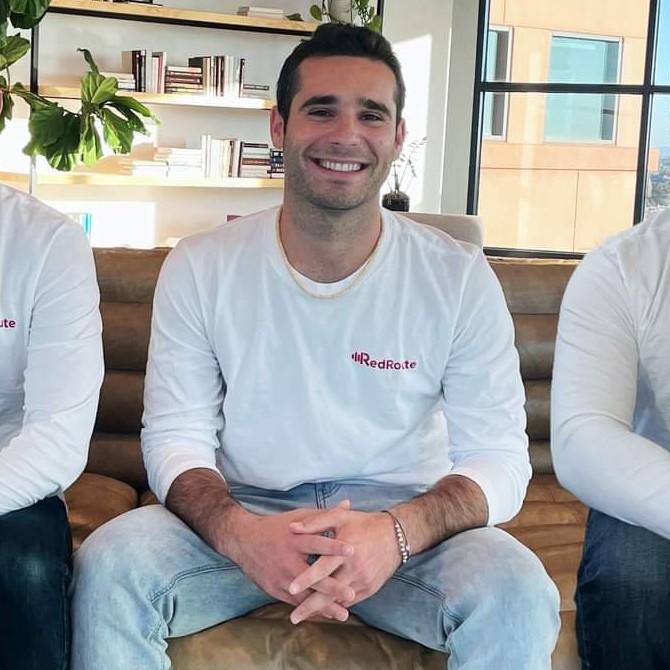
Brian Schiff
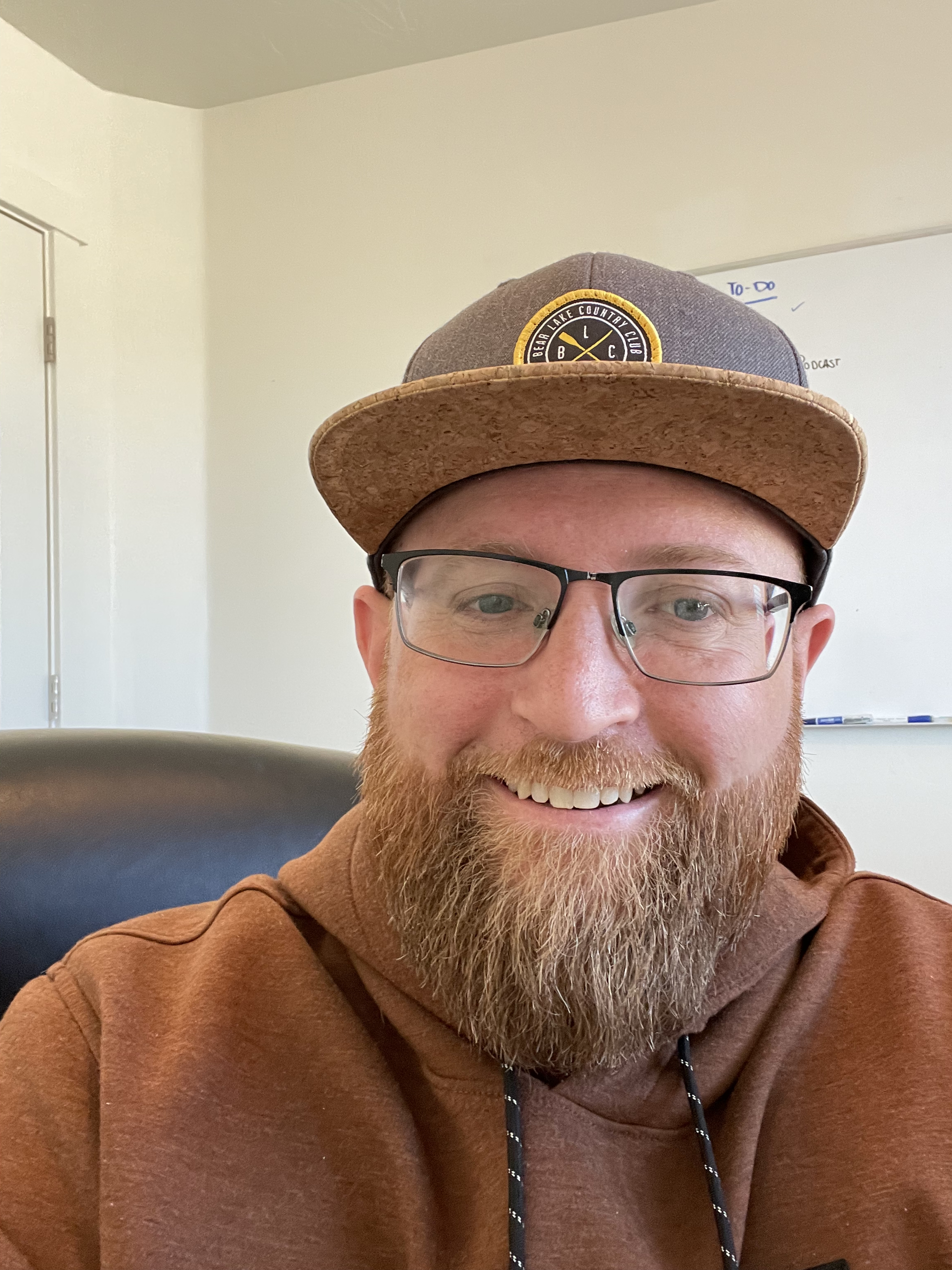
James Gilbert
Today's Guests
